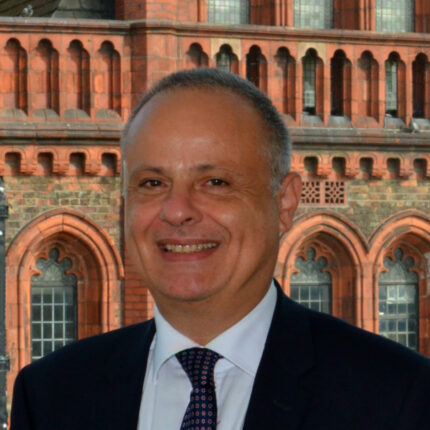Climate justice, a key element of the UN’s Sustainable Development Goals, underpinned much of COP26. In practice, this means ensuring a diversity of leadership and a fair distribution of the resources needed to adapt to climate change.
But it also needs to be a central consideration in how we provide opportunities for people to live more sustainably and how we manage our own transition toward less carbon intensive industries. For the delivery of the Sustainable Development Goals to be just that, truly sustainable, equity must be a first principle.
Take the problem of poor air quality. Its impacts are unevenly distributed between and within countries, regions and cities with disadvantaged communities disproportionately affected. Within the UK, the coincidence of the so-called “triple jeopardy” of air pollution, poor health indicators and social deprivation compound and exacerbate already existing inequalities – a phenomenon mirrored by the coronavirus pandemic with deadly consequences.
Like climate change, Covid-19 has its roots in the challenges of sustainability. As a zoonotic disease, it asks profound questions about our practices in agriculture and food systems. Its global reach challenges our commitment to the Sustainable Development Goals through the fairness of our supply chains. And, as others have highlighted, an equitable economic recovery from Covid is the only way to build a more sustainable and resilient global economy.
Partnerships for sustainability
In the face of these intertwined global crises, there are local lessons. Our response to Covid-19 in the Liverpool City Region engaged a wide range of partners at speed. It relied on the expertise of the region’s universities, the quick actions of local authorities, of public health, engagement by the private sector, and the coordination and leadership of the Liverpool City Region Combined Authority.
This harmonised approach delivered immediate as well as longer-term benefits. Liverpool was able to roll out a mass testing pilot in days, returns to mass events were trialled safely, and the city region now hosts a globally facing Pandemic Institute committed to helping the world prevent, prepare, and respond more effectively to future pandemics.
We have learnt from our Covid-19 experience that partnerships between cities, city regions, and higher education institutions are a powerful way to respond to an emergency. There is one global climate crisis, but it is made up of many local climate crises that require local solutions. In the Liverpool City Region, we recently set ourselves the ambitious target to increase our R&D spend to five per cent of GVA by 2027. Ahead of the Levelling Up White Paper, this should inspire all partners to consider whether a more local R&D settlement would be appropriate to proactively tackle these challenges more effectively.
We are building on the investment we made in collaboration: utilising our global research excellence, our combined strengths and unique geographic and industrial assets to address local climate challenges. We are delivering projects in partnership, changing the way we work, the way we power our homes, the way we transport our goods and ourselves, and how we harness our future energy. Our drive to become Britain’s renewable energy coast will be realised through pioneering and innovative developments in offshore wind, tidal power, hydrogen generation and storage. Glass Futures is leading the way in industrial decarbonisation.
The university is also working with others across the north west, including Liverpool John Moore’s University, to deliver industry-led collaborative research projects across multiple disciplines. To date, this work has supported over 500 businesses, created more than 300 jobs, and added £45 million gross GVA to the local low carbon economy. The university’s Zero Carbon Research Institute is deciphering the complex carbon landscape and designing strategies to support businesses to become net zero, and the Centre for Excellence for Sustainable Food Systems is harnessing expertise locally, working with Liverpool City Council, to enable equitable and fair access to healthy, nutritious food sourced from sustainable systems.
This collaborative work is an important first step, but the challenge to all leaders in our public institutions is how to go further to meet the most pressing challenge of our time, while ensuring social buy-in and addressing existing social and economic inequalities. This cannot be done by lone actors.
Local net zero
In the build up to the levelling up white paper we hope the government will allocate resources and powers locally to develop local net zero plans. The government’s commitment to grow R&D expenditure to £20bn by the end of this Parliament offers a huge opportunity for Westminster to work closely with universities, local, and regional authorities, on planning a more decentralised approach to sustainable growth and innovation.
We’ve got lots of ideas, but we need to be able to match our infrastructure with our ambitions. The people of our region have a proud tradition of creativity and innovation, but our vision can only be realised with greater local engagement in regional R&D strategies. And, perhaps most importantly, it is about priorities, and there can be no greater priority than a just transition toward a more sustainable future.
There are difficult decisions to be made on investment, infrastructure and skills to ensure a strong local workforce for a low carbon future, but the cost of inaction is too great. There is a key role for city regions in developing ambitious sustainability skills plans and for education institutions in providing students who can meet those skills needs. This is a challenge for the whole country.
We will look back on COP26 as a failure if it is remembered only as a moment and not the start of a movement towards creating a different world. That is only possible with innovation policy support from government to empower our localities: from the research strengths and knowledge leadership of universities to make a transition possible, to the economic priorities of regional leadership to shape a greener future, and through the input of civic, academic, and business partners, to embed these commitments in all our organisations. The answers to this macro challenge can be found on a micro level.














